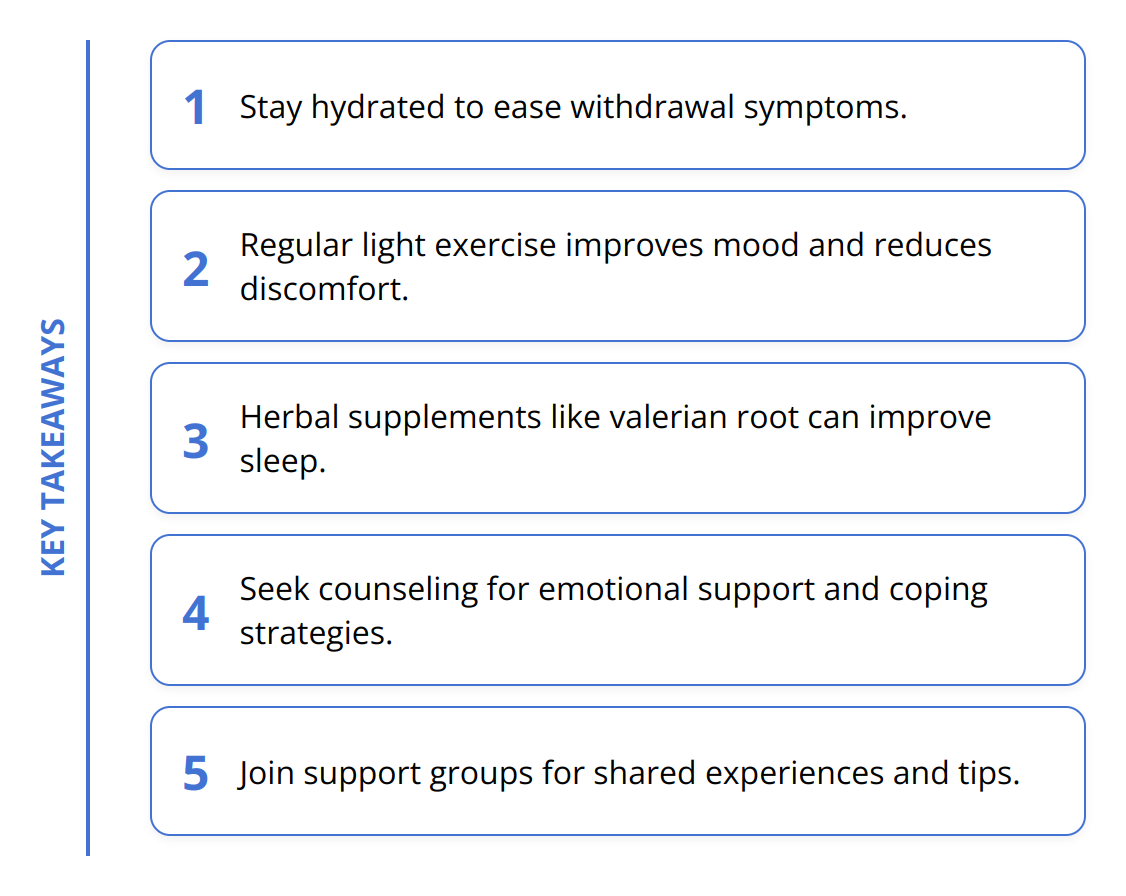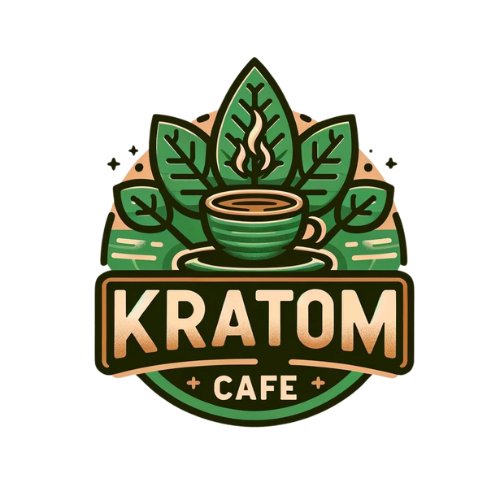We at Kratom Cafe understand the challenges that come with kratom withdrawal. Navigating through this period requires accurate information and effective strategies. This post aims to offer both natural remedies and professional advice to support those experiencing withdrawal symptoms. Our goal is to help you manage these symptoms safely and successfully.
Understanding Kratom Withdrawal
Kratom, a tropical tree native to Southeast Asia, has gained popularity for its dual properties, acting as a stimulant at low doses and as a sedative at higher doses. People have turned to kratom for various reasons, including pain relief, mood enhancement, and assistance with opioid withdrawal symptoms. However, its usage is not without challenges, especially when it comes to discontinuation.
The Nature of Kratom Withdrawal Symptoms
Withdrawal symptoms from kratom can vary in severity and duration, much like other substances that affect the opioid receptors in the brain. Common withdrawal symptoms include muscle aches, irritability, mood disturbances, runny nose, insomnia, and aggressive behavior. The intensity of these symptoms often correlates with the duration and amount of kratom use.

Timeline of Withdrawal Symptoms
The onset of withdrawal symptoms typically begins 12 to 48 hours after the last dose. The acute phase can last for about a week, with peak intensity occurring around the third day. It’s vital to understand that the experience of withdrawal can vary significantly from person to person, influenced by factors like individual physiology, the specific strain of kratom used, and the consumption method.
Managing Symptoms Effectively
Here are a few actionable strategies to manage kratom withdrawal symptoms:
-
Stay Hydrated: Dehydration might exacerbate symptoms, so drinking plenty of water is essential.
-
Exercise: Light to moderate physical activity can help reduce discomfort and improve mood.
-
Healthy Diet: Eating a balanced diet supplies the body with necessary nutrients and can boost energy levels.
-
Support Networks: Reaching out to friends, family, or a support group can provide emotional support and advice.
-
Professional Help: In cases of severe withdrawal, consulting healthcare providers for guidance is advised. They might recommend treatments such as tapering the kratom dose slowly to ease withdrawal symptoms.
For those looking for natural remedies to manage pain and discomfort during withdrawal, exploring alternatives like pain management herbs might be beneficial. Additionally, understanding how to utilize kratom for wellness can provide insights into alternative consumption methods that might reduce dependency risks.
In summary, while kratom withdrawal can be challenging, it’s manageable with the right strategies and support. Recognizing the symptoms and understanding the detox process are the first steps toward recovery.
Natural Relief for Kratom Withdrawal
Finding relief from kratom withdrawal symptoms is essential for anyone going through the detox process. This chapter emphasizes natural remedies, focusing on hydration and nutritional support, herbal supplements, and the importance of rest and stress management.
Hydration and Nutritional Support
Maintaining optimal hydration is key during withdrawal. Dehydration can worsen symptoms like headaches and fatigue. Aim for at least 8-10 glasses of water a day. Incorporating electrolyte-rich drinks can also aid in maintaining the body’s balance.
Nutrition plays a critical role in the body’s healing process. Withdrawal symptoms can be mitigated with a diet rich in fruits, vegetables, lean proteins, and whole grains. Foods high in omega-3 fatty acids, such as salmon and walnuts, can help reduce inflammation and boost mood.
Herbal Supplements That May Help
Certain herbal supplements have been used for centuries to alleviate withdrawal symptoms. These include:
-
Valerian Root: Known for its sedative qualities, valerian root can aid in improving sleep quality during withdrawal.
-
Passionflower: Often used for anxiety relief, passionflower may help manage mood swings and stress.
-
Ginseng: This herb can boost energy levels and help combat the fatigue associated with withdrawal.
When considering herbal supplements, consulting with a healthcare provider is advised to avoid potential interactions with other medications.
Importance of Rest and Stress Management
Adequate rest is vital for recovery. Withdrawal can disrupt sleep patterns, making it essential to create a calming bedtime routine. Practices like meditation, deep breathing exercises, and yoga can be effective for stress management and improving sleep quality.
Managing stress is equally important. Techniques such as mindfulness and cognitive-behavioral strategies can provide lasting skills to handle anxiety and cravings. Engaging in hobbies and activities that bring joy and relaxation can also make a significant difference.

In conclusion, finding relief from kratom withdrawal requires a multifaceted approach. Combining hydration, a nutritious diet, herbal supplements, and strategies for rest and stress management can collectively ease the process. For more in-depth guidance on managing withdrawal, consider exploring resources such as the guide to herbal pain management and information on using kratom responsibly.
Seeking Professional Help
When dealing with kratom withdrawal, turning to professional support can significantly enhance the recovery journey. Understanding when to seek medical advice, exploring various therapy options, and acknowledging the importance of counseling are vital steps. These approaches offer structured support, equip individuals with coping mechanisms, and, crucially, address any underlying issues that may contribute to substance use.

Knowing When to Get Medical Advice
It’s imperative to seek medical advice if withdrawal symptoms severely impact daily functioning or if previous attempts to quit have been unsuccessful. Warning signs that indicate the need for professional intervention include intense cravings, severe depression, thoughts of self-harm, or physical symptoms that are difficult to manage alone. Medical professionals can offer tailored advice, prescribe medications to ease withdrawal symptoms, and guide individuals through a safe detox process.
Exploring Therapy and Support Groups
Therapy plays a crucial role in addressing the psychological aspects of withdrawal and recovery. Cognitive Behavioral Therapy (CBT), for instance, helps in identifying and changing negative thought patterns and behaviors related to kratom use. Meanwhile, support groups provide a sense of community and shared experience, making the journey less isolating. Whether it’s online forums or local meetings, these groups offer invaluable space for sharing strategies and encouragement.
Support groups and therapy sessions are not just about managing withdrawal; they’re about building a new, fulfilling life without dependence. They help in developing new hobbies, rebuilding relationships, and setting goals for the future.
The Role of Counseling in Recovery
Counseling can be a lifeline during the withdrawal phase, offering a safe environment to explore emotions, discuss challenges, and receive personalized support. Addiction counselors are skilled in navigating the complexities of recovery, providing both emotional support and practical advice. They can also introduce coping strategies and relaxation techniques to manage stress and cravings effectively.
For individuals struggling with co-occurring mental health issues, such as anxiety or depression, counseling is particularly beneficial. It addresses the root causes of kratom use and ensures a holistic approach to recovery.
In essence, professional help is not just about navigating withdrawal but about ensuring a sustained and healthy recovery. Early intervention, combined with a comprehensive support system, significantly improves outcomes for individuals seeking to overcome kratom dependency. Those in need of guidance can refer to resources like the guide to kratom withdrawal and managing chronic pain without opioids for additional support.
-
Early consultation can prevent complications.
-
Counseling and therapy offer tools for long-term recovery.
-
Support groups provide emotional solace and practical tips.
In sum, seeking professional help is a step toward reclaiming control over one’s life, with numerous resources available to aid in this transition.
Final Thoughts
Navigating kratom withdrawal successfully involves a blend of natural remedies and professional guidance. We at Kratom Cafe have shared several strategies that are effective in managing withdrawal symptoms, and we encourage everyone going through this process to consider both natural and professional assistance.

Staying hydrated, maintaining a nutritious diet, and incorporating herbal supplements are key natural approaches that can significantly alleviate withdrawal discomfort. Moreover, adopting methods for rest and stress management plays a crucial role in healing and recovery.
However, it’s important to recognize when professional help is needed. Whether it’s consulting a healthcare provider for severe symptoms or engaging in therapy and support groups to address the psychological aspects of withdrawal, professional resources are invaluable.
Remember, withdrawal is a highly individual experience, and what works for one person may not work for another. It’s all about finding the right balance and strategies that work for you.
We at Kratom Cafe are committed to supporting you on this journey. Our platform offers a wealth of information and resources, including advice on using kratom for wellness and practical tips for managing chronic pain without opioids. Whether you’re seeking to understand more about kratom’s potential benefits or looking for support during withdrawal, we’re here to help.
Your safety and well-being are our top priorities. Embarking on the road to recovery is a significant step, and we commend you for taking it. With the right strategies, support, and resources, navigating kratom withdrawal can be a safe and successful process.

